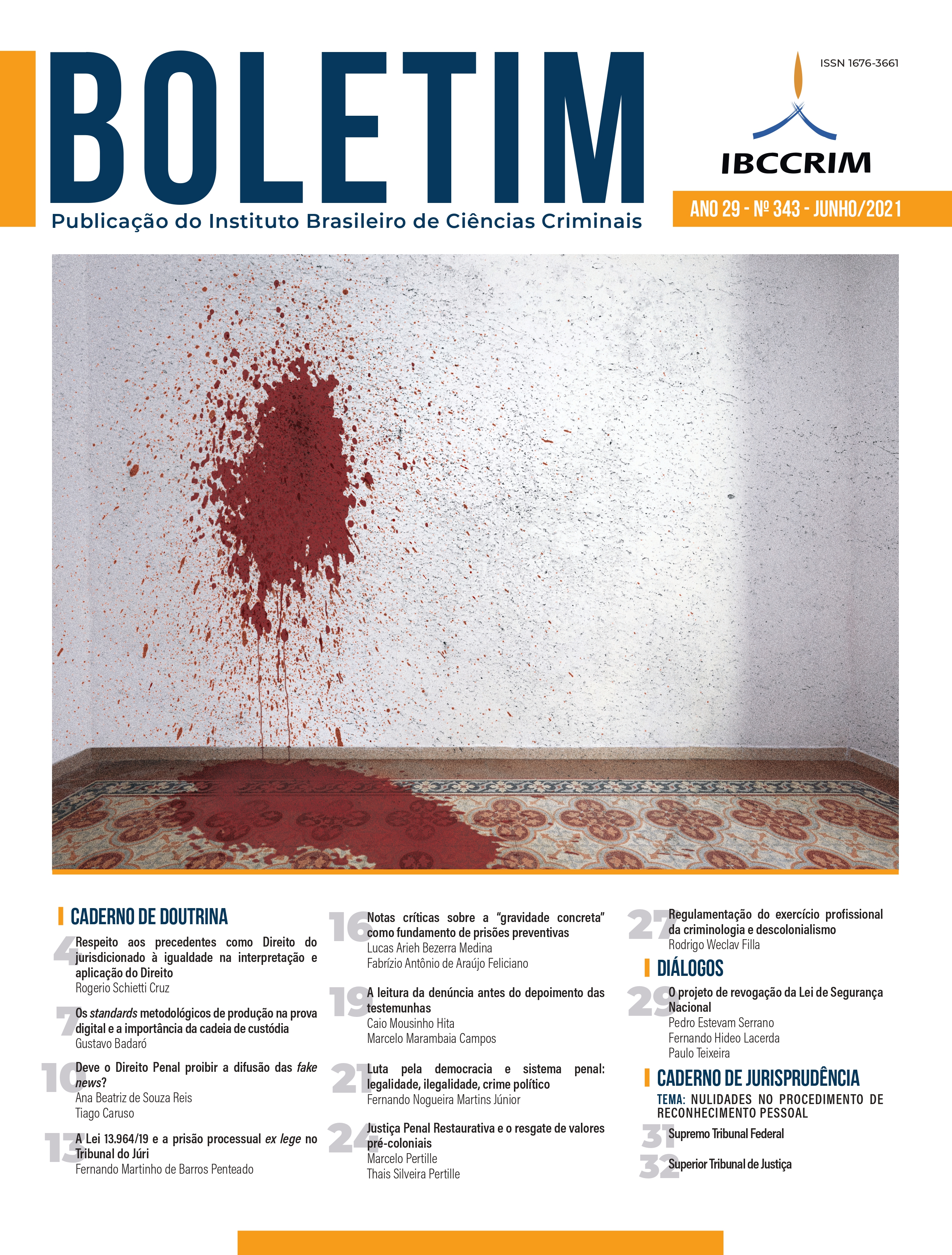Regulation of the professional exercise of criminology and decolonialism
Views: 192Keywords:
Regulation, Criminologists, DecolonialismAbstract
The Brazilian criminal policy is built daily by state agencies which historically prioritize repressive mechanisms and reproduce structures of economic domination imposed by the upper classes and imperialism. Criminologists are relegated to theory, however purposeful and essential their recommendations may be. This article defends the regulation of the profession to assist in the decolonial turn.
Downloads
Publication Facts
Reviewer profiles N/A
Author statements
- Academic society
- Instituto Brasileiro de Ciências Criminais
- Publisher
- IBCCRIM
References
AGAMBEN, Giorgio. Homo sacer: o poder soberano e a vida nua I. Belo Horizonte: Ed. UFMG, 2007.
CARCANHOLO, Marcelo Dias; AMARAL, Marisa Silva. Acumulação capitalista e exército industrial de reserva: conteúdo da superexploração do trabalho nas economias dependentes. Revista de Economia, v. 34, n. especial, p. 163-181, 2008.
DEL OLMO, Rosa. A América Latina e sua criminologia. Rio de Janeiro: Revan, 2004.
MARINI, Ruy Mauro. Dialética da dependência: uma antologia da obra de Ruy Mauro Marini. Petrópolis: Vozes, 2000.
MARX, Karl. O capital: crítica da economia política: livro I: o processo de produção do capital. São Paulo: Boitempo, 2013. E-book.
RUSCHE, Georg; KIRCHHEIMER, Otto. Punição e estrutura social. 2. ed. Rio de Janeiro: Revan, 2004.
SANTOS, Juarez Cirino dos. A criminologia radical. 4. ed. Florianópolis: Tirant Lo Blach, 2018.
SOARES, Luiz Eduardo. Desmilitarizar: segurança pública e direitos humanos. São Paulo: Boitempo, 2019.
SOUZA SERRA, Marco Alexandre de. Economia política da pena. Dissertação (mestrado em Direito) - Faculdade de Direito, Universidade Federal do Paraná, Paraná, 2007.
VALOIS, Luís Carlos. Direito penal da guerra às drogas. 2. ed. Belo Horizonte: D’Plácido, 2017.
ZAFFARONI, Eugenio Raúl; BATISTA, Nilo; ALAGIA, Alejandro; SLOKAR, Alejandro. Direito penal brasileiro: volume 2, tomo 2. Rio de Janeiro: Revan, 2017.
Downloads
Published
How to Cite
Issue
Section
License
Copyright of published articles belongs to the author, but with journal rights over the first publication and respecting the one-year exclusivity period. Authors may only use the same results in other publications by clearly indicating this journal as the medium of the original publication. If there is no such indication, it will be considered a situation of self-plagiarism.
Therefore, the reproduction, total or partial, of the articles published here is subject to the express mention of the origin of its publication in this journal, citing the volume and number of this publication. For legal purposes, the source of the original publication must be consigned, in addition to the DOI link for cross-reference (if any).


 Português (Brasil)
Português (Brasil)
 English
English
 Español (España)
Español (España)






